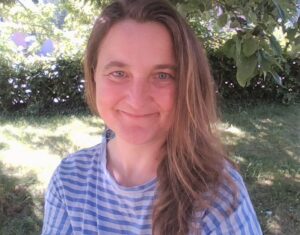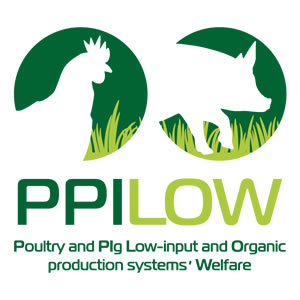New people in the PPILOW project: Daniela Werner, Craig Chibanda, Emy Ridderbos, Zsolt Boros
 Daniela Werner (Thuenen, Agricultural Researcher)
Daniela Werner (Thuenen, Agricultural Researcher)
Daniela studied agricultural science at the University of Gießen. After working in the animal feed sector for 10 years, she joined the Thuenen Institute of Organic Farming in 2018. She is part of the work group pig & poultry and has mainly worked with pigs so far but is eager to dive into the world of organic poultry. In PPILOW she will take over the lead of Task 5.2 dealing with field studies with dual-purpose breeds from Lisa Baldinger and will be involved in the facilitation of the German national practitioner group on poultry.
 Craig Chibanda (Thuenen, Agricultural economist)
Craig Chibanda (Thuenen, Agricultural economist)
Craig Chibanda is an agricultural economist who has worked at the Thuenen Institute on poultry issues since 2019. He recently joined the PPILOW project in February 2023 and is conducting poultry farm economic analysis of slow-growing dual-purpose breeds under WP7. Prior to joining PPILOW, he worked on broiler farm economics in Ghana, Senegal and Germany. Craig is also in the final phase of his PhD at Hohenheim University. His doctoral research is entitled: “Broiler production in Ghana and Senegal: Economics, International Competitiveness and Policy Considerations”. Craig holds a MSc. in Agricultural Economics (University of London), a Master in Business Administration (MBA ESG) and an Engineer degree in Agriculture (Blida University).
 Emy Ridderbos (UU, Student)
Emy Ridderbos (UU, Student)
This spring, Emy Ridderbos joined the UU team. She is an Applied Biology student at the HAS Green Academy. Her internship is established in collaboration with Herenboeren. In this on-farm study, Emy is comparing the behaviour of laying hen hybrids and dual-purpose hens in mobile houses, with the aim to design the most optimal conditions in these systems to prevent feather pecking and cannibalism, especially when the birds need to stay indoors to prevent the spread of Avian Influenza.
 Zsolt Boros (USAMV, PhD student)
Zsolt Boros (USAMV, PhD student)
Boros Zsolt graduated in 2017 the Faculty of Veterinary Medicine at the University of Agricultural Sciences and Veterinary Medicine Cluj-Napoca. He finished his PhD in 2022 at the Department of Parasitology and Parasitic Disease, under the coordination of Prof. Dr. Vasile Cozma. The topic of his doctoral thesis was “Epidemiological and experimental studies regarding Trichinella spp. infestations in sylvatic fauna (wild boars, mustelids) from Romania”. Innovative contributions of the thesis were: “Seroprevalance of Trichinella spp. in wild boars (Sus scrofa) from Bihor county, Western Romania” is the first study that highlights the presence of anti-Trichinella antibodies in wild boars from Bihor County, Romania. All the animals tested negative in the golden standard method but came out positive in ELISA and Western blot. The current study also highlights the fact that local consumers might be at risk to consume a small quantity of larvae as animals could be misdiagnosed using the artificial digestion method. “The effects of Artemisia absinthium (wormwood), Allium sativum (garlic), Cucurbita pepo (pumpkin), and Coriandrum sativum (coriander) on Trichinella spiralis and Trichinella britovi larvae, in vitro study” presented that C. pepo and C. sativum at 2.5% concentration had a strong effect against both species of Trichinella, but A. sativum and A. absinthium (2.5%) were less efficient against T. britovi. Thus indicating that T. britovi could be more resistant against some plant extracts than T. spiralis and higher concentrations are necessary to obtain the same effect. The current study is amongst the first which included T. britovi and not only T. spiralis in the experimental protocol. “Antiparasitic action of Lactobacillus casei ATCC 393 and Lactobacillus paracasei CNCM strain in CD-1 mice experimentally infected with Trichinella britovi” is amongst the first studies that tested the effects of probiotics on T. britovi. The study showed that L. casei ATCC 393 was more efficient in reducing the number of adult parasites in female mice at the intestinal level than L. paracasei CNCM. His activity in the PPILOW project, will be focused on tasks in the activities of the project for improving robustness, positive behaviour and survival in pigs.

